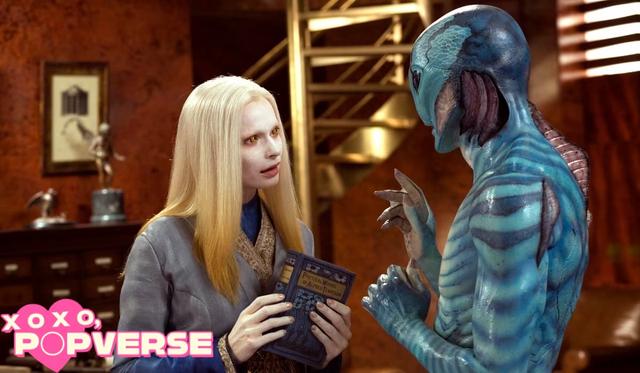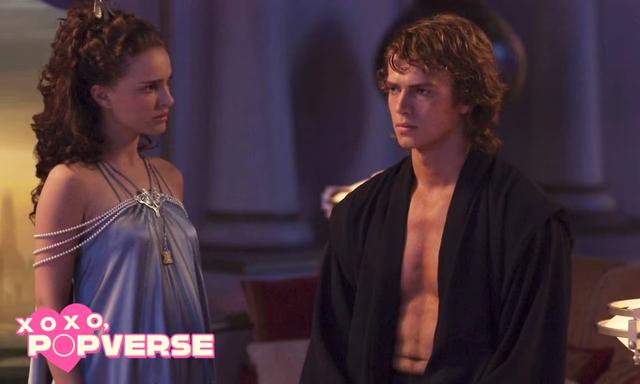If you click on a link and make a purchase we may receive a small commission. Read our editorial policy.
Black Horror as Function, Jordan Peele, and The Keeper: Inside the Ethnogothic panel at San Diego Comic Con
The SDCC panel The Ethnogothic: Horror and Conjure in Storytelling examines the renaissance of horror works in Black speculative fiction

Horror writers and educators Tananarive Due and Steve Barnes, Fangoria columnist Lea Anderson, and cultural anthropologist Stanford W. Carpenter joined two-time Eisner winner John Jennings on Friday, July 22, 2022 at Comic-Con International: San Diego for the panel The Ethnogothic: Horror and Conjure in Storytelling. Over the 50-minute program, the panel shared ideas about the function of horror, discussed the current renaissance of Black horror films sparked in large part by Jordan Peele's Get Out, and talked about the universal gothic themes at play in The Keeper, Due's and Barnes' upcoming graphic novel illustrated by Marco Finnigan and published by Megascope/Abrams ComicArts.
A term created by Jennings and Carpenter, 'ethnogothic' comes from a series of conversations the two had about the subgenre of horror and its relationship with Afrofuturism, and more broadly Black speculative fiction.
"What I'm putting on Afrofuturism is the way it looks forward, but what we were dealing with were issues around trauma," says Carpenter. "If Afrofuturism is about looking up and out, horror is going in. That's a thing we felt needed its own space and its own vernacular."
"You have to name that monster, claim that monster, kill it, let it go," adds Jennings. "When you name things like that, you control it. You can actually deal with it. And then maybe you'll get on the bus to the Afrofuture."
For Anderson, there's an urgency to have terminology to help explain and describe what the panel recognizes is a renaissance moment for Black horror stories in a variety of media.
"We are grappling with these things at the same time as the work is actively being produced," she said. "One of the things that's coming out of this with more eyes on Black horror works is that we're developing better language for how to address it."
The panel agrees that this resurgence and interest in Black horror stories is directly related to the work of Jordan Peele, starting with Get Out in 2017, Us in 2019, and Nope that released on Friday, July 22, 2022.
"I think he's a good compass for artists, not only in breaking out of the box, but in shying away from violence against Black people," says Due. "I think one of the dangers of how commercialized Black horror became after Get Out is that some artists with proximity to Hollywood who are not necessarily horror artists were given opportunities to tell stories of horror that were about the thing itself. Like lynching as horror. Yes, lynching is horror noire. But what I think a lot of these new artists don't understand is that horror is first and foremost entertainment. I'm not entertained by lynching."
"Jordan Peele has absolutely done something amazing because he's a world class humorist," adds Barnes. "He's able to adjust the tension level perfectly. He doesn't have to make you vomit with the fear. He can make you laugh at it. It bubbles up, and then you laugh."
The Keeper's omnipresent horror

Due and Barnes also discussed their upcoming horror graphic novel The Keeper that's set to release on September 27. The story follows Aisha, a young Black girl who must live with her ailing grandmother after her parents are killed in a car crash. But almost as soon as Aisha moves in, her grandmother's health rapidly deteriorates. Concerned about Aisha's welfare after her impending death, the grandmother summons a dark spirit to watch over Aisha, a spirit that has protected the family for generations that Aisha refers to as The Keeper.
Written by Due with support from husband Barnes, the inspiration for The Keeper comes from a childhood memory that has never left her: The night she spent alone with her ailing great-grandmother at her great-grandmother's home.
"She was very old. She had emphysema and she had an oxygen machine," says Due. "I was terrified that she was going to stop breathing overnight while I was alone with her. I remember staring at what the end of life looks like, in the face, like I had never had before. It has a huge impact on me."
Barnes' role in this collaboration was to be the person with what he refers to as the "kill switch," or the person whose responsibility is to listen to the other, reflect, and prompt.
"I would ask Tananarive questions about the monster: 'What does it want?' 'What is its life cycle?' 'Where did it come from?'" said Barnes.
Asked by Carpenter what they considered as they constructed a Black horror story for a multicultural readership, Due and Barnes explains that they honed in on fears they felt anyone could relate to.
"Our mechanism for fear in The Keeper is aging," says Due. "That was the tone, especially at the beginning of this piece. It doesn't matter that she's Black. It doesn't matter that her family, her father, has suffered racial violence. It's about fear of the path to death."
Due added that The Keeper is also an exploration of grief. "I think for a lot of people, grief is the first true horror that we experience. The loss of a loved one," she said.
"The way we get into The Keeper may be a fear of aging, but after certain things happen in the story, it's the isolation and it's also the question of what would you do to survive," says Barnes. "Yes, different cultures have different ideas of death but all animals are programmed to try to avoid it."
"Culture influences how people react," he adds, "but also arises from the way human beings interact with their environment, which would imply that whereas there are cultural-specific horrors, the core of what we're afraid of are universal."
Are You Afraid of the Dark helped a generation embrace the beauty of horror after school one campfire tale at a time.
Follow Popverse for upcoming event coverage and news
Find out how we conduct our review by reading our review policy
Let Popverse be your tour guide through the wilderness of pop culture
Sign in and let us help you find your new favorite thing.
















Comments
Want to join the discussion? Please activate your account first.
Visit Reedpop ID if you need to resend the confirmation email.